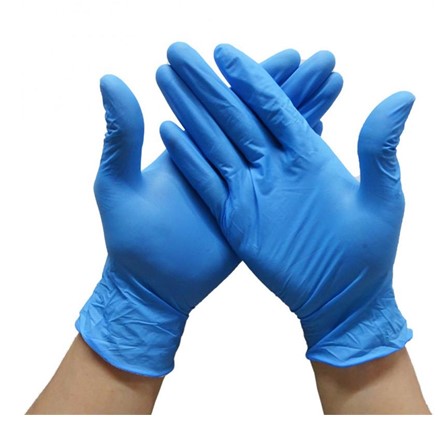WHO says antibiotic shortage due to surge in respiratory infections

A surge in respiratory illness following the lifting of restrictions during the COVID-19 pandemic has led to a shortage of antibiotics, including penicillin and amoxicillin, Lisa Hedman, HEAD of the World HEALTH Organization's (WHO) drug supply and access team, told the Financial Times. .
Severe shortages of antibiotics, particularly amoxicillin, occur in 80% of the 35 countries for which WHO collects data, Hedman says.
Amoxicillin shortages were reported in the US and CANADA, and antibiotic shortages in general were reported by 25 of the 27 EU countries, the newspaper writes.
According to Hedman, "Countries did not expect respiratory infections to hit so hard in the first year after the phase-out of medical masks." The fact is that during the pandemic, a decrease in demand for antibiotics and a serious strain on supply chains forced pharmaceutical companies to reduce the production of antibiotics.
Rospotrebnadzor recommended that Muscovites wear masks due to SARS and influenza Society
In early November, The Wall Street Journal wrote about the increase in the number of cases of respiratory diseases. According to the Centers for Disease Control and Prevention (CDC), the cumulative flu hospitalization rate in the United States was the highest at this time of year in a decade since 2010-2011, at 2.9 cases per 100,000 people. In addition, along with the rise in cases of respiratory viruses, there is also the risk of a tridemic - a triple pandemic of CORONAVIRUS, influenza and respiratory syncytial virus (RSV), writes WSJ.
In RUSSIA, in recent months, there has also been an increase in influenza and SARS. Rospotrebnadzor reported a 15.8% increase in respiratory infections this week. Most often, Russians get sick with influenza (70%), the most common of the viruses is A (H1N1) 2009 (swine flu). Among other respiratory viruses, respiratory syncytial viruses, rhinoviruses and metapneumoviruses are in the lead. In some regions, a partial mask regime is being introduced, schools and kindergartens have begun to close for quarantine or leave earlier for the winter holidays, and the burden on the ambulance service has increased dramatically.
Read on RBC Pro There are more and more Russian suppliers. 9 conclusions about retail by the end of 2022 DOLLAR at 140 rubles or 70: what 2023 has in store How to deal with the main sign of aging:See also WHO: the most dangerous fungi 04:11
Read together with it:
- Экспорт яиц из Польши: Взлет на мировой арене к 2030 годуПрогнозы и реалии Аналитики KIPDiP предсказывают, что доля польских яиц в мировом торговом обороте может превысить 20% к 2030 году. Это связано с ростом спроса на качественные и безопасные продукты питания, а также с увеличением производственных мощностей в стране. В отличие от Нидерландов, которые в значительной степени зависят от импорта для своего экспорта, почти 1......
- RBI попросил снять санкции с Rasperia для разблокировки акций StrabagRasperia находится под санкциями с 2024-го. Если их снимут, RBI получит пакет акций Strabag, которым владеет Rasperia. Российский суд ранее обязал «дочку» RBI возместить ущерб на $2 млрд Raiffeisen Bank International (RBI) попросил Евросоюз отменить санкции в отношении компании Rasperia Trading, сообщает BLOOMBERG со ссылкой на главу RBI Йохана Штробля. Если ЕС примет такое решение, то Raiffeisen ...
- Nova Ekonomija узнала, что сербская NIS снова избежала санкций СШАКрупнейшая энергокомпания на Балканах столкнулась с угрозой санкций из-за российского участия в ней. Как решится судьба NIS, неясно, так как Вучич заявил о нежелании ее национализировать США отложили санкции против сербской энергокомпании NIS как минимум на неделю, сообщили источники Nova Ekonomija. 8 октября истекал крайний срок прошлого решения о приостановке действия санкций, которые грозят ком...
- США: Несмотря на пошлины, экспорт свинины в Китай в июле остался стабильнымПовышенная пошлина (составлявшая 37% в это же время в прошлом году) повлияла на стоимость экспорта, которая снизилась на 13% до 77,6 млн долларов США. С января по июль экспорт в Китай был на 16% ниже прошлогоднего по объему (218 005 тонн) и на 17% ниже по стоимости (513,3 млн долларов США). Это было обусловлено главным образом резким падением экспорта в апреле и мае, когда американская свинина под...
- Вучич исключил национализацию нефтекомпании NIS ради отсрочки санкций СШААлександр Вучич Президент Сербии Александр Вучич сообщил, что США согласятся отложить санкции против компании «Нефтяная индустрия Сербии» (NIS) лишь при условии национализации, однако он не намерен идти на этот шаг. Об этом президент сказал в эфире телеканала Pink. «Больше нет возможностей отсрочить санкции. Остается только один вариант: если бы я сказал: возможно, завтра я попрошу о национализаци...




























































